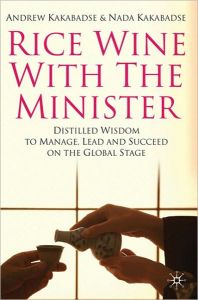Join getAbstract to access the summary!

Join getAbstract to access the summary!
Andrew Kakabadse and Nada Kakabadse
Rice Wine with the Minister
Distilled Wisdom to Manage, Lead and Succeed on the Global Stage
Palgrave Macmillan, 2010
What's inside?
Use these 21 tips to learn how to lead a global organization (or at least how to act in a meeting overseas).
Recommendation
If, while on an overseas business trip, you’ve ever poked inquiringly at something unidentifiable on your plate, author Andrew Kakabadse knows how you feel: He survived 21 consecutive toasts with 60-proof rice wine at a business dinner in China. By the end of the dinner, only he and the local provincial minister were still standing. Along with his co-author, Nada Kakabadse, he uses the metaphor of the rice wine test to explain the challenges that global corporate leaders face in dealing with a seemingly homogenized business world that is diverse, complex and sometimes baffling in reality.
Summary
About the Authors
Andrew Kakabadse, a professor at Cranfield University’s School of Management, and Nada Kakabadse, a professor at the University of Northampton Business School, both write extensively on leadership and corporate governance.



















Comment on this summary